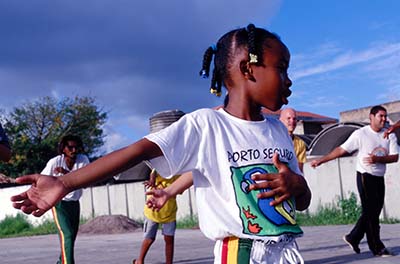Social Inclusion through Sports and Physical Culture in Russia

Key Contact
Sarah G. Michael
Start Date
End Date
Funding Amount
$ 29,880
Topics
Knowledge-providing Countries
Knowledge-receiving Countries
Summary
Since Russia's transition from a planned to a market economy over two decades ago, economic growth has been steady and GDP per capita has increased threefold – yet inequality has also risen significantly.
Looking for ways to reduce inequality and social exclusion, Russian authorities chose sports as a powerful mobilizer and vehicle for access to remedial services. Global evidence suggests that sports also provide a powerful and cost-effective entry point for social inclusion. Studies have shown sports’ effectiveness in integrating disabled people and promoting equality, employment, education, youth development, gender relations, and healthier lifestyles in the wider population.
To this end, the Government of the Russian Federation drafted a Long-term Social and Economic Development Strategy for 2008-2020 to create conditions for social integration of vulnerable people through cultural, educational, and physical development. The Ministry of Sports developed a project to use sports for social integration of vulnerable groups, and is keen on learning from, and adapting, international approaches and models. At the time, the Russian Government did not have a clear understanding of the approach, the necessary policy frameworks, or the personnel requirements. The World Bank identified Brazil—a country with policy-makers and practitioners who have faced the same challenges in the past—as a suitable partner for a knowledge exchange.
The Russian exchange participants were key technical experts from the Ministry of Sports who were directly involved in preparing the Social Inclusion through Sports and Physical Culture project.
The knowledge exchange included visits to learn about social inclusion through sports programming supported by the government and civil society and meetings with municipal and regional government officials on social inclusion policies and approaches. The delegation also met with other stakeholders to learn about approaches to working with vulnerable youth and the disabled, and it visited transparency and social accountability initiatives related to sports construction.
The learning exchange was a great success. The Russian delegation met with more than 30 project staff members from 17 organizations working for social inclusion of vulnerable youth and people with disabilities.
Beneficiaries / Participants
Since Russia's transition from a planned to a market economy over two decades ago, growth has been steady and GDP per capita has increased threefold. However, between 1988 and 2009 inequality has also risen significantly, as measured by the GINI coefficient, from 23.8 to 40.1. The country's strong economic recovery and downward poverty trends mask serious challenges of inequality and social exclusion.
Russian authorities drafted a Long-term Social and Economic Development Strategy for 2008 to 2020, and chose sports as a powerful mobilizer and vehicle for access to remedial services and as an effective means of social inclusion.
The Russian Federation Ministry of Sport worked with the World Bank to help identify countries that had successfully gained a clear understanding of approaches, entry points, necessary policy frameworks, personnel and human resource capacity requirements to achieve social inclusion through sports. The World Bank identified Brazil as a good match, and a Bank team helped arrange a knowledge exchange for key technical experts from the two countries.

 China
China Colombia
Colombia Denmark
Denmark India
India Indonesia
Indonesia Mexico
Mexico Russian Federation
Russian Federation Spain
Spain United Kingdom
United Kingdom